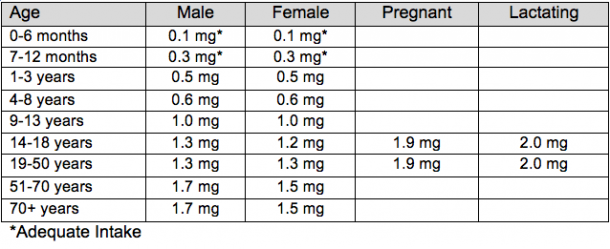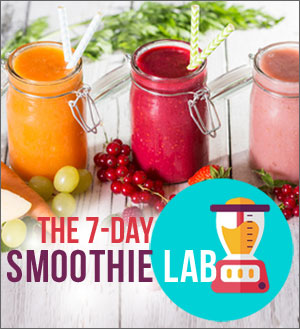 Vitamin B6 is essential for dozens of metabolic reactions. Energy metabolism, glucose utilization, neurotransmitter synthesis, hormone activity, DNA synthesis and red blood cell formation are all dependent on vitamin B6.
Vitamin B6 is essential for dozens of metabolic reactions. Energy metabolism, glucose utilization, neurotransmitter synthesis, hormone activity, DNA synthesis and red blood cell formation are all dependent on vitamin B6.
Because B6 is so important for metabolism of amino acids, higher protein intake means increased use of B6.
Recommended Dietary Allowances for Vitamin B6
 Source: Office of Dietary Supplements, National Institutes of Health
Source: Office of Dietary Supplements, National Institutes of Health
Which Foods Have Vitamin B6?
Salmon
Halibut
Tuna
Beef liver
Swordfish
Barley
Turkey
Potatoes
Chicken
Pork
Beef
Tomato sauce
Plums, prunes and prune juice
Sweet peppers
Bananas
Brussel sprouts
Lentils
Fortified ready-to-eat cereals contain varying levels of B6, sometimes the whole Recommended Daily Intake for an adult.
What Happens If You Don’t Get Enough Vitamin B6?
Dietary deficiency of B6 is considered rare, because B6 is available from so many foods. Some people may be at increased risk for deficiency due to medical problems, like kidney disease, alcoholism or autoimmune disorders. Severe deficiency can cause neurological symptoms like irritability and depression. Other adverse effects are anemia, a sore or swollen tongue, itchy rashes and scaly cracked skin around the mouth.
Recent research on B6 has questioned whether increased daily intake might improve healthy, beyond just preventing deficiency. Studies investigating the effect of vitamin B6 on chronic disease have linked low intake to impaired immunity and higher risk for heart disease.
In the elderly, poor intake is associated with cognitive decline and decreased immune function. In one study, markers for immune function were improved by increased daily B6 intake that was slightly above the RDI.
High blood levels of the amino acid homocysteine are linked to increased risk for heart disease. B6 plays a role in metabolism of homocysteine, and research has shown that low B6 status is associated with elevated homocysteine.
Some data suggest that improved B6 intake lowers risk for heart disease. However, results from all these studies are inconsistent, and don’t clearly show that large increases in B6 intake will prevent disease.


 Are you ready to look better, feel more energized, and get back that youthful feeling you remember having as a kid? I can help you on a journey that will change the way you eat — for good. My
Are you ready to look better, feel more energized, and get back that youthful feeling you remember having as a kid? I can help you on a journey that will change the way you eat — for good. My 














 As a healthy cooking expert, health coach and TV host,
As a healthy cooking expert, health coach and TV host, 



Speak Your Mind